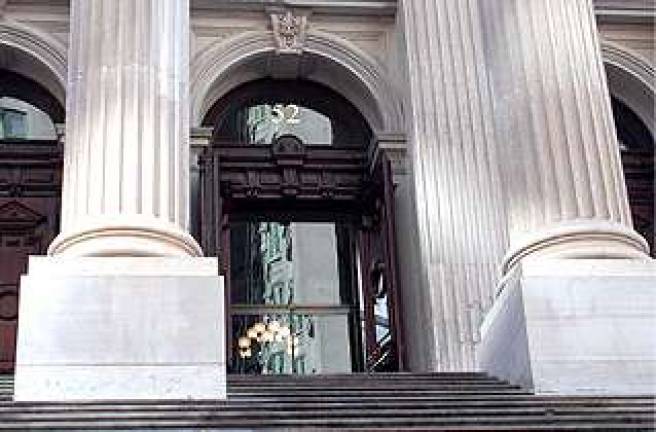Community Education Council Discusses Hot Button Issues in District 3

The CEC brought together families, educators and Dept. of Ed. Chancellor Walcott to address pressing issues facing the school district A joint town hall meeting got heated last week as parents, educators and the District 3 Community Education Council (CEC 3) demanded answers from Chancellor Dennis Walcott and his team regarding a variety of issues facing schools in the district. The principals of both the Frederick Douglass and Wadleigh schools were present and said their schools have made radical comebacks in recent years. The suspension rate at Wadleigh has dropped by 80 percent and changes have focused on college and career readiness, while Frederick Douglass, which recently faced closure, has seen a turnaround with the support of parents and the CEC. Walcott said he hoped to continue to emphasize college and career readiness in the district schools and do away with the notion that low income students and those with housing issues present extra difficulties for the schools or "don't belong" as some believe. "I do not allow anyone to talk ill of our students," said Walcott. "They all have the ability to learn at a high level with the proper support." In response to the issue of admissions to middle and high schools and the fact that several district 2 schools have district 2 admissions priority while being some of the highest rated and highest applicant rate schools, Walcott said the high school admissions process has improved significantly over the years. "We have made more options throughout the city with the creation of small schools and new schools," he said. "There are more schools to choose from, 85 percent of selections are in students' top five choices." [caption id="attachment_62699" align="alignright" width="300"](http://nypress.com/wp-content/uploads/2013/04/Walcott-Wadleigh-school.jpg) Wadleigh Secondary School for the Performing & Visual Arts located at 215 West 114th Street.[/caption] "We have been able to encourage choices and give more quality choices," he added. Still Walcott maintained it's difficult to go back on outdated processes of grandfathering which tend to give unfair priority. Carl Pressley, a district 3 parent, asked the chancellor and his team why some of the same successful practices used in charter schools cannot be used in district schools. Walcott assured community members the same practices are being used in district schools, many of which are performing well and are "very creative." Walcott also addressed the recent PCB leaks in schools across the City and plans to remediate all schools. "Two years ago we set aside 800 million dollars to address the PCB issue throughout the City, we are the only city that has done something along that line," said Walcott. He added the two year plan is no longer viable, however, particularly with the current court case on the issue pending. "This has been a priority for several years and we are working with the EPA," said Walcott. Other issues discussed included student privacy and concerns over data-mining and publicizing students' information, school redevelopment and demolition, class size and overcrowding, general space concerns, the common core curriculum, standardized testing and gifted and talented programs. The chancellor's partners assured parents potential redevelopment and demolition processes are still in their infancy in the district and community members' concerns will be addressed and input solicited before any plans move forward and before the issuance of an RFP. Anthony, a teacher at Whadleigh, expressed his frustration with remodeling in district 3 schools and its impact on the students. "We're having to do more with less space," he said. CEC member Joe Fiordaliso agreed overcrowding is a serious issue in the district in addition to a general loss of space due to construction. Fiordaliso said 1,300 parents signed a petition to create new middle schools in the district, to which the chancellor replied he has committed to developing more middle schools throughout the entire city. "I set a goal to create 50 middle schools; we're at 61," said Walcott. "We are open to new middle schools in D3 and we are starting our portfolio process. Beacon will become available in 2015." With regard to the implementation of common core curriculum, parents expressed concern their children were being penalized emotionally by not understanding the new curriculum. There was also general agreement less emphasis should be placed on high stakes standardized testing. "How can standardized testing determine a kid's entire future?" asked Elizabeth Rivera, a parent and teacher in district 3. Walcott said, "We have a responsibility as a system to make sure [our students] are getting a higher course of learning so while I understand the anxiety and pressure, it's a pressure as a result of making sure students are getting a higher style of learning in schools and are being prepared to take tests." "We have a responsibility to teach them why we use the core curriculum and lower their anxiety," he added. With regard to high stakes standardized testing, Walcott described a balancing act. "Our students will do better and better and better but we have to put [the new test] in place and we're doing that this year," he said. While parents worried also about gifted and talented programs and inadequate space for qualified students at schools for accelerated education, Walcott responded that schools are best served by a blend of students. "I always struggled with this," he said. "Quite frankly with seat matching and gifted and talented, we need to look at the possibility of a separate system."